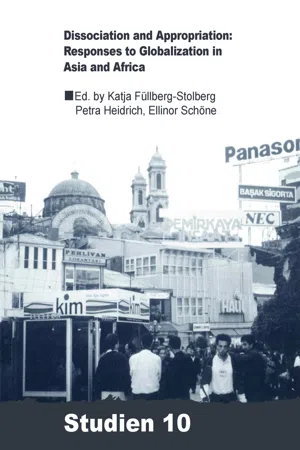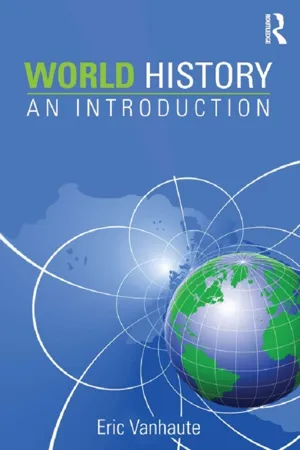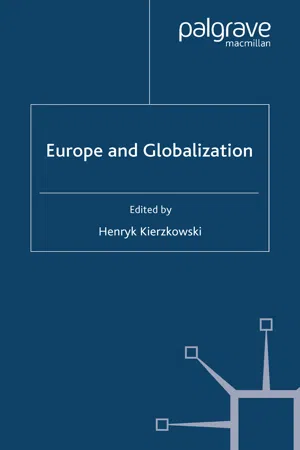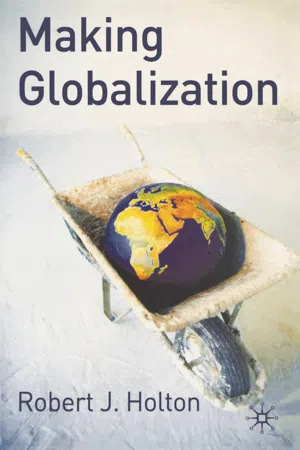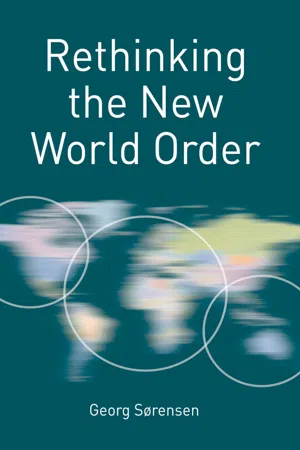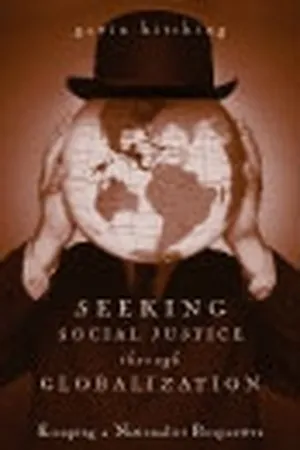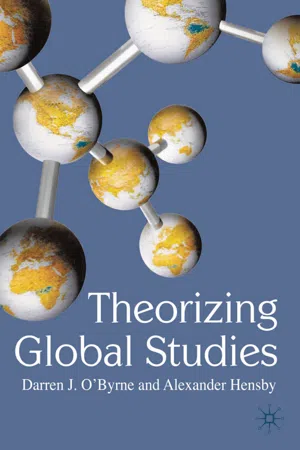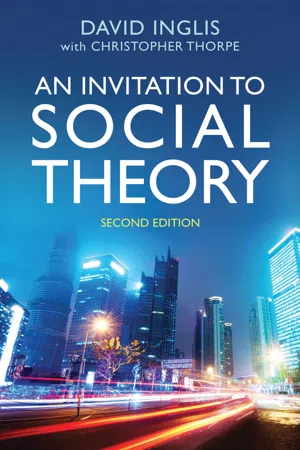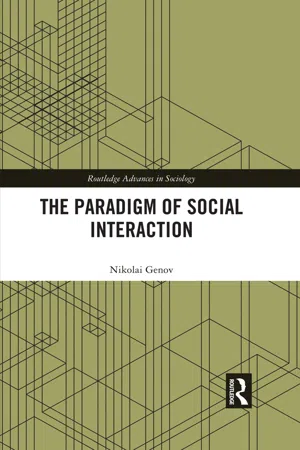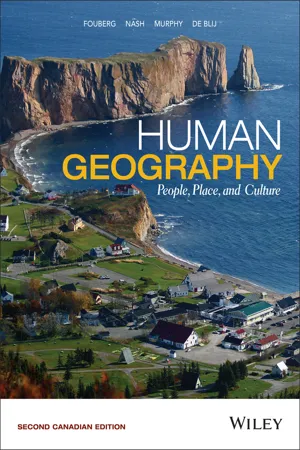History
20th Century Globalization
20th Century Globalization refers to the rapid expansion of global interconnectedness and interdependence in the 20th century. It was driven by advancements in technology, transportation, and communication, leading to increased international trade, cultural exchange, and the spread of ideas. This period saw the emergence of multinational corporations, global supply chains, and the integration of economies on a worldwide scale.
Written by Perlego with AI-assistance
Related key terms
1 of 5
10 Key excerpts on "20th Century Globalization"
- eBook - PDF
- Katja Füllberg-Stollberg, Petra Heidrich, Ellinor Schöne, Katja Füllberg-Stollberg, Petra Heidrich, Ellinor Schöne(Authors)
- 2021(Publication Date)
- Klaus Schwarz Verlag(Publisher)
Any student of relevant topics will have to take cognisance of the situation. Globalization in Historical Perspective 35 IV Several scholars attribute globalization as a typical feature to the twentieth cen-tury. They are inclined to look at it as the major factor for bringing about a genuine global history that tends to establish a global society - as distinguished from the earlier universal history which centred on the transregional and trans-continental interaction of people, cultures and countries and which saw the na-tion states as the chief agents or major players. 20 Another interpretation which draws both from social theory as well as from the sociological reality em-phasizes that the processes of globalization were set in high motion, reached their crucial phase of take-off, during the period lasting from about 1880 through the first quarter of the twentieth century 21 . One could, in this connec-tion, also cite as a precursor the opinion of Arnold Toynbee who periodized the beginning of the new age of Western history in the 1870s by locating at this juncture as simultaneous events the globalization of Western culture and the re-empowerment of non-western states. 22 The concept parallels the interpreta-tion which established a coincidence between the crisis of hegemony of the West and the beginning of the use of Western and indigenous symbols by people without history to construct their own identity-spaces. In contrast, authors who favour the world-system's attitude perceive of globalization as a continuous process, which encompasses the past five centuries. They are not prepared to demarcate the establishment of transcontinental links or transcultu-ral interaction and the configuration of universal relations since the age of Columbus and Vasco da Gama on the one hand, from the recent process of globalization, on the other. - eBook - ePub
World History
An Introduction
- Eric Vanhaute(Author)
- 2013(Publication Date)
- Routledge(Publisher)
In the 1990s, globalization became a buzzword, an umbrella term used to label the social transitions in the last quarter of the twentieth century. Globalization developed into a generalized container term that aimed to unite all the historical processes of increasing interaction and interconnection. This chapter further examines what we mean by globalization and, specifically, the historical scope of the concept. What does world history teach us about globalization, and is it a useful concept for denoting social changes? Looking for a definition In general, the concept globalization refers to the world becoming ‘smaller’ or, in more scholarly terms, to a compression of time and place. Globalization implies a systematic reduction of boundaries. It primarily refers to the blurring of economic borders and to the larger scale of markets for goods, capital and labour. Globalization was first used in this sense in The Economist in 1959. The concept experienced a breakthrough 30 years later, after the fall of the Berlin Wall and the commercial expansion of the Internet in 1989. In subsequent years, both events seemed to create a new world in which economic boundaries fell and other ‘flows’ of knowledge, information, ideas, values and beliefs became broader and more intense. This shrinking of the world is the seemingly paradoxical consequence of a growth process in which more and more interpersonal connections develop on an ever-growing scale. Contemporary globalization indicates the ‘terminus’ of this growth process: expanding markets and flows will eventually cover the earth’s entire surface. Classic examples of this globalization process include increased human mobility and improved communication worldwide - eBook - PDF
- H. Kierzkowski(Author)
- 2002(Publication Date)
- Palgrave Macmillan(Publisher)
II.4 Summary: the nineteenth and twentieth centuries compared It would appear that the nineteenth century saw greater globalization gains than any period before or since. There is however an important distinction to be made between levels and trends. There was greater progress towards integration in the nineteenth century along every dimension of globalization, but in terms of the absolute level of integration, matters are more obscure. Commodity markets are probably somewhat better integrated today, although we lack convincing evidence to this effect; capital markets are on balance about as well integrated today; and labour markets are less well integrated today. Causes of Globalization, 1790 to 2000 73 III. Explaining international economic integration Why did the nineteenth century see more impressive gains in international economic integration than did the twentieth? The answers must lie in the tech- nological and political histories of the two periods, and I consider each in turn. III.1 Technological change Findlay (Chapter 2 in this volume) has discussed the impact of globalization on the European industrial revolution of the late eighteenth century, but causation was by no means one way: some of the most dramatic effects of that revolution, with its breakthroughs in steam technology and metallurgy, would occur in the following century in the transportation sphere. O’Rourke and Williamson (1999) document the impact of railroads in cutting transport costs on land; by sea, the development of the steamship played a crucial role in making intercontinental trade cheaper. Knick Harley’s (1988) index of British ocean freight rates remains relatively constant between 1740 and 1840, before dropping by about 70 per cent between 1840 and 1910: a dramatic decline indeed, and one which was mirrored on sea routes worldwide (Findlay and O’Rourke 2001). - eBook - PDF
- Robert J. Holton(Author)
- 2017(Publication Date)
- Red Globe Press(Publisher)
It is only with the third type of globalization – the modern – that attention shifts to institutions and the time period after 1800 that sociologists typically associate with globalization as a Western project. We are talking in other words of the European and North American global expansion and world dominance of the 19th and 20th centuries. Within this phase, the emphasis is very much on the combination of qualitative and quantitative changes in cross-border activity, inter-dependence, and global imagining. The commercial, political, and cultural developments of the proto phase were now extended and transformed by Western nation-states. This involved shifts from state mercantilism to global free trade, and changes in production and communications technology (ibid.: 28). Transportation improvements, to take only one element in the picture, both increased the speed and reduced the costs of transactions, whether for goods or people. From the point of view of global domination, free trade and Imperialism could and did go hand in hand (even if ideological tensions between liberal cosmopolitans and imperialist globalizers When did Globalization Begin? 45 were real and widespread). Both required strong nation-states to enforce and/or institutionalize their functioning. They also stimulated expansion in the range and numbers of global actors including entrepre-neurs and colonial administrators, engineers and doctors, missionaries and explorers, anthropologists and linguists to participate in globalizing projects. This apparatus incorporated many members of subaltern colonized groups, especially the educated, primarily in lower to middle levels of administration (Anderson 1992). A seeming paradox at the heart of the modern form of globalization is the centrality of the nation-state. This may seem puzzling from an early 21st-century viewpoint, where much debate has taken place around the idea that globalization is undermining the nation-state. - eBook - PDF
- Georg Sørensen(Author)
- 2016(Publication Date)
- Red Globe Press(Publisher)
124 6 Economics: The Dynamics of Globalization Introduction The principal characteristic of the economic structure is the ongoing process of globalization. Globalization is the intensification of eco-nomic, political, social and cultural relations across borders (Holm and Sørensen 1995: 4). The focus in this chapter is on economic glo-balization in all of its aspects, for example trade, production, invest-ment and financial flows. The aim is to identify the major features of current processes of globalization and to evaluate their consequences for world order. During most of the Cold War, it was relevant to think of the eco-nomic world in terms of three areas: the industrialized capitalist coun-tries; the developing countries in Asia, Africa and Latin America; and the centrally planned economies of the communist world. But in 1979, China (and Vietnam) began a move away from central plan-ning and towards international markets; the Soviet Union began a similar move by the mid-1980s and when the Cold War ended the entire Eastern Bloc followed suit. Developing countries had focused on domestically driven economic development in the 1960s and 1970s; with the debt and oil crises of the late 1970s they chose, or were pushed by donors, in the direction of economic openness. A severe balance of payment deficit took India in the same direc-tion in 1990. The industrialized world, meanwhile, was compelled to reform the fixed exchange rate regime connected with the Bretton Woods system; that opened to floating exchange rates and the mas-sive growth of international financial markets (Frieden 2012 ). - eBook - PDF
Seeking Social Justice Through Globalization
Escaping a Nationalist Perspective
- Gavin Kitching(Author)
- 2001(Publication Date)
- Penn State University Press(Publisher)
m Globalization as a Contemporary Phenomenon Toward the end of Chapter I offered a list of six propositions that some- one might put forward to show how far globalization had advanced, as a process, over the last thirty or so years. The first of these propositions was that “national and even regional economies are much more deeply inter- dependent than they were thirty years ago.” I then went on to list, briefly, the measures of economic interdependence (export dependence, import dependence, and so forth) that economists frequently use in this con- text. In this chapter I want to return to this proposition, because in some ways it is perhaps both the most general, and the most important propo- sition in that list of six. In fact the other five propositions 1 that followed it may all be seen simply as different expressions and/or effects of the “much deeper economic interdependence” of national and regional economies referred to in that first, very broad or general, proposition. In this chapter, therefore, I want to consider in more detail the deepen- ing interdependence among economies brought about through the process of globalization. I also trace the origins of this economic globalizing pro- cess to a major crisis that confronted virtually all the advanced industrial m The End of the Postwar Long Boom 1. Just as a reminder, these were increased global movements of capital and labor, increasing importance of multinational corporations (MNCs) in global trade and invest- ment, rapid improvement of global means of communication through advances in telecommunications, and the declining influence of individual states over crucial economic variables that affect the welfare of their populations. economies of the world in the early to mid s. That crisis is often referred to as the end of the postwar long boom in the world economy. - eBook - PDF
- Darren J O'Byrne, Alexander Hensby(Authors)
- 2020(Publication Date)
- Red Globe Press(Publisher)
Still others see it as a process which ushers in the end of the modern age (Albrow 1996). These distinctions, large and small, will be addressed in this chapter. One of the clearest attempts to produce a general mapping of globalization across recent history has been offered by Roland Robertson (1992: 58–9). His useful sequencing of five ‘phases’ is re-presented below in tabular form for the convenience of the reader, although much of the wording is verbatim: Much could be done to develop this model, and of course to update it (not least in the light of the events of 11 September 2001, the invasions of Afghanistan and Iraq, and the ‘war on terror’, plus the global financial crisis). What remains useful, and interesting, about it is that it presents globaliza-tion in gradual rather than absolute terms, as a process involving real human experiences. In Robertson’s mapping, the world becomes increasingly inter-connected and thus ‘smaller’ because of a growing consciousness of it, while at the same time our consciousness of it is enhanced because it is becoming increasingly interconnected and compressed. In other words, globaliza-tion as a generic process and the globalization of the world are intertwined processes. 1.2 Compression: the growing interconnectedness of the world Robbie Robertson’s (2003) historical account of globalization claims that, while the drive to interconnectedness is as old as human civilization, the beginnings of a global interconnectedness can be traced to around 1500 AD, to the early mappings of the world, early European imperialism and the open-ing up of new trade markets. This, he says, is the ‘first wave’ of globalization. The ‘second wave’ emerged around 1800 and its catalyst was the industrial revolution, while its politics were driven by high imperialism. - No longer available |Learn more
- David Inglis, Christopher Thorpe(Authors)
- 2018(Publication Date)
- Polity(Publisher)
cultural facets of globalization. We will examine each set of theories in turn.Figure 13.1 Four Dimensions of Globalization Processes, and Key Questions About Them.Globalization as Economic Processes
Despite their other differences, both right-wing defenders of capitalism and radical, often Marxist, critics of capitalism believe that globalization is primarily an economic set of phenomena, that have had profound effects on the world today. Despite the waxing and waning popularity of Marxist ideas in public discourses over time, it is quite ironic that contemporary popular discussion of globalization partly follows, although mostly unintentionally, the views of Marx and his collaborator Friedrich Engels. In the middle of the nineteenth century they wrote in the Manifesto of the Communist Party (1968 [1848]: 38) that ‘the need of a constantly expanding market for its products chases the bourgeoisie over the whole surface of the globe’. What they were claiming was that capitalism contains within itself a dynamic that compels it, in its search constantly to make profits, to expand its markets all across the world. Capitalism seeks to bring every single person on the planet under its sway as both a producer of goods, from which it can extract profits, and as a consumer of those goods. Marx and Engels (1968 [1848] : 38) saw that this increasingly globe-spanning capitalismbatters down all Chinese walls [i.e. all national defences against it] … It compels all nations, on pain of extinction, to adopt the bourgeois mode of production … [and] to introduce what it calls civilization into their midst, i.e., to become bourgeois themselves. - eBook - ePub
- Nikolai Genov(Author)
- 2021(Publication Date)
- Routledge(Publisher)
Royakkers et al. 2018) is the major constructive phenomenon of technological and economic development at present, and it will remain so for the foreseeable future. Digitization introduces immense flexibility of decision-making and the implementation of decisions for upgrading production and services. Under the new conditions, they can easily switch from large-scale production and services to much smaller quantities of products “tailored” to the needs of a specific client. This flexibility in production and services requires changes in the organization of work in the direction of project-based teams. Another constructive development fostering the functioning of globality is the industrialization of some developing countries by using mechanisms for outsourcing technology and know-how from more advanced parts of the world.Thus, global liberal markets seem to be a blessing for countries and people everywhere. Transnational companies are cheered for their achievements in the transborder transfer of capital, technology, know-how and labor forces. The World Trade Organization has become another hero of the times for its efforts to reduce national barriers hindering global trade. The process was supported by the positive image of economic globalization, particularly after the end of the Cold War. A lot of hopes were placed on the expected impacts of global economic stability and prosperity on the reduction of extreme poverty worldwide. Moreover, it was once widely believed that the deepening economic interdependence of countries and regions would powerfully foster tolerance, negotiations and cooperation in all activities. Economic integration at the level of globality used to be regarded as the major factor for achieving the desirable worldwide political and cultural integration. Globalization of the economy was believed to be the key factor for reducing the political and cultural preconditions for war (Ruettimann 201 - eBook - PDF
Human Geography
People, Place, and Culture
- Erin H. Fouberg, Alexander B. Nash, Alexander B. Murphy, Harm J. de Blij(Authors)
- 2015(Publication Date)
- Wiley(Publisher)
According to geographer John O’Loughlin and his colleagues, globalization is “neither an inevitable nor an irreversible set of processes” (2004, p. 4), while Andrew Kirby states that it is “not proceeding according to any particular playbook” (2004, p. 133–158). Globalization is perhaps better understood as an unpredictable and highly selective set of processes and outcomes created by people, be they corporate CEOs, university administrators, readers of blogs, or protesters at a trade meeting. The processes of global- ization and the connectedness created through globalization are not limited to state-to-state interaction. Rather, the con- nection occurs across scales and across networks, regardless of state borders. The focus on human agency, participation, and choice highlights how both scholarship and grassroots protest might be harnessed to work with the possibilities and poten- tials of globalizing processes to foster more beneficial, univer- sal outcomes. • Globalization, according to George Ritzer, is an accelerating set of processes involving flows that encompass ever-greater numbers of the world spaces and that lead to increasing integration and interconnectivity among those spaces. • The processes involved are often seen as economic but are also political, cultural, social, and technological. Although globalization is often seen as a global process, it has pro- found local implications. • The current world system, in which globalization is a con- temporary process, is rooted in some 500 years of colonial and imperial exploration by European countries. In this world system, countries are viewed as constituting part of the core, periphery, or semi-periphery. • Globalization processes have changed the nature and organization of cities, creating what we now call world cities, such as London, New York, and Tokyo. These cities are often centres of finance, information, and administra- tion and are interconnected at the global scale.
Index pages curate the most relevant extracts from our library of academic textbooks. They’ve been created using an in-house natural language model (NLM), each adding context and meaning to key research topics.
